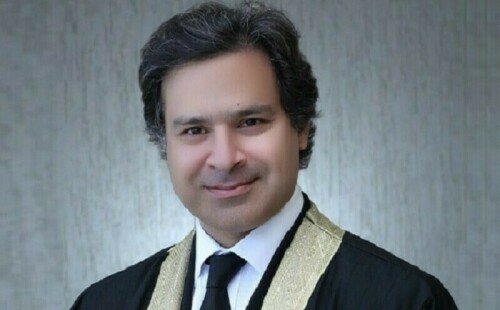ISLAMABAD: Information Minister Fawad Chaudhry on Wednesday stirred a storm by announcing that a crackdown was expected soon against extremism on social media as rights activists expressed scepticism about the move.
Addressing an event against religious extremism and counter-narrative organised by the Pakistan Institute of Parliamentary Studies, the minister said that preparations had been made and the operation would be launched in a few weeks.
He said that a working group, led by the Federal Investigation Agency and including other agencies, had been formed and a mechanism devised to curb hate speech on social media.
The minister said that the informal media was a greater problem than the formal media and the former was set to become more important than the latter soon. Therefore, there was a need for capacity-building of relevant departments that could monitor social media and trace fake accounts so that those who broke the law could be prosecuted.
Move sets alarm bells ringing for rights activists
“The problem is that the digital media is leaving formal media behind, so it is important for us to regulate this,” he said. “We are introducing a new authority called the Pakistan Media Regulatory Authority which will serve as a one-window operation for digital, print and electronic media.”
He also spoke about some arrests made over issuance of decrees (fatwa), propagating extremist narratives and hurling threats on social media.
“In the next few weeks we will launch a crackdown,” Mr Chaudhry said. “I am making it clear that the state will not allow extremists to dictate their narrative by use of force.”
He said that the state wanted a dialogue, “but that cannot happen if the other side does not let you do that and if you are told that ‘my opinion is final and if you disagree I will shoot you or you should be hanged for saying this’. Then you are using the state’s powers. Only the state has the power to use force or violence. Any individual cannot be allowed to do the same”.
The minister said that the subject needed to be debated at the international level and many countries were already doing that. He referred to Saudi Arabia’s Vision 2030, saying that it also provided a mechanism against extremism.
“We want to build a national and international narrative against extremism and we believe in making the laws reign supreme in Pakistan,” he said.
Mr Chaudhry said that extremist Islam was a recent phenomenon because Islam was spread in the subcontinent through the teachings of Sufism, which was based on tolerance.
“It all came about when we became stuck in the irregular conflict in Afghanistan,” he said. “An irregular conflict creates doubts in minds as to who is the enemy. On the other hand, a regular conflict like the 1965 war is clear and it actually creates unity among the citizens,” he said.
He said that it was the resilience of the Pakistani nation that made them survive after being dragged into the irregular conflict, “If it were any other society or country like those in the Middle East, it would have been shattered on sectarian or tribal basis.”
“We escaped this fragmentation of society as we have a long history of tolerance and coherence,” the minister added.
He said that more than 70,000 lives had been lost (in the fight against terrorism) and the next stage was to eradicate terrorism.
“The first stage is extremism that leads to terrorism and dialogue is the basic principle of society, but extremists do not take part in debates,” he said. “This is where the role of the state comes in to ensure freedom of expression for all.”
In an allusion to the media, the minister said that some quarters thought that freedom of expression was limitless.
“No sir, there is no liberty in the world that is without a limit. Your limit ends where my limit starts, and you cannot infringe on my freedom,” he said, “We have laws for this but they could not be enforced earlier due to political and security issues, but now that we have made it out of the irregular conflict, it is the responsibility of the state to contain hate speech.”
He praised the formal media for helping the government curb hate speech. “We will control hate speech on social and digital media, even through fake accounts,” he added.
Fawad Chaudhry’s remarks have sounded alarms bells among rights activists who said that the government might contain rights of citizens on the pretext of crackdown against extremism.
Nighat Dad of the Digital Rights Foundation said that the government move should not be a smokescreen for tightening of the noose around freedom of speech or imposing strict censorship of social media.
“There is a law — the Prevention of Electronic Crimes Act — enacted during the term of the Pakistan Muslim League-Nawaz government and endorsed by the Pakistan Tehreek-i-Insaf. The government should deal with all cybercrimes under the law,” she said. “Actions should be taken against those harassing or blackmailing people through social media and even those who hack social media accounts.”
Ms Dad said that if there were shortcomings in the law, it should be improved instead of forming a new authority in this regard.
Civil rights activist Tahira Abdullah slammed the suggestion given by the information minister. She said they would rather discuss the matter with Dr Arif Alivi, president of the country.
“Dr Alvi was with us as part of team against stringent clauses of crime law when he was in opposition, but now this PTI government is doing what PML-N had started.”
Referring to the Pakistan Media Regulatory Authority, she said creating new departments only strengthened bureaucracy but did not correct the wrong.
Published in Dawn, February 14th, 2019















































Dear visitor, the comments section is undergoing an overhaul and will return soon.